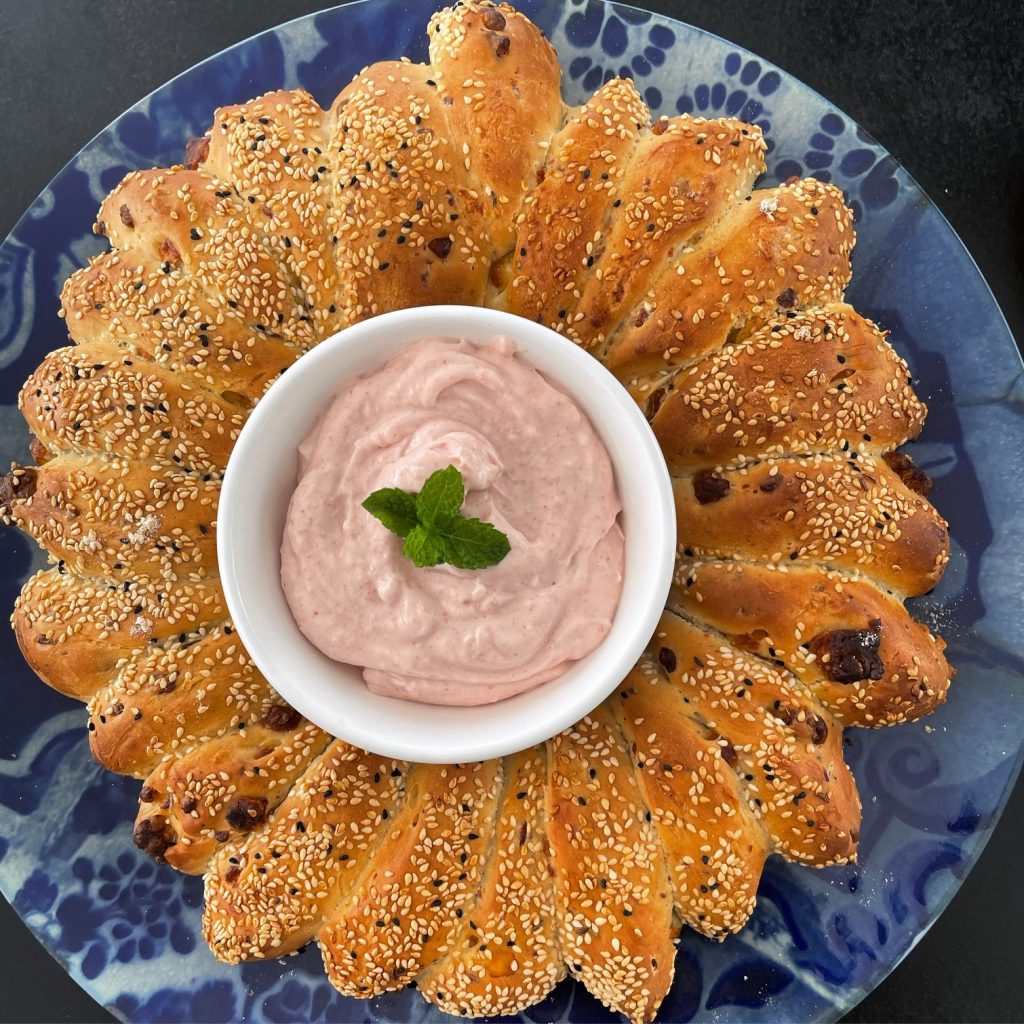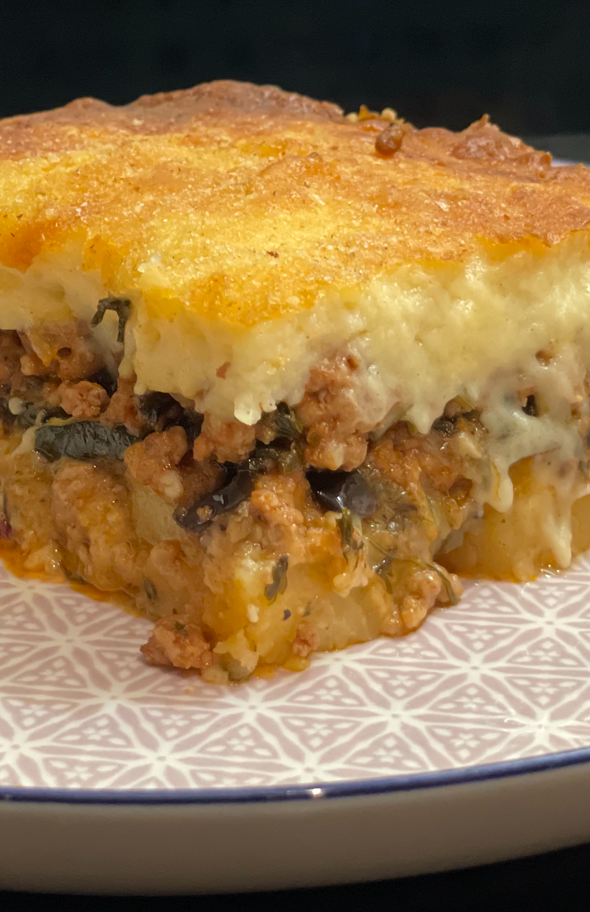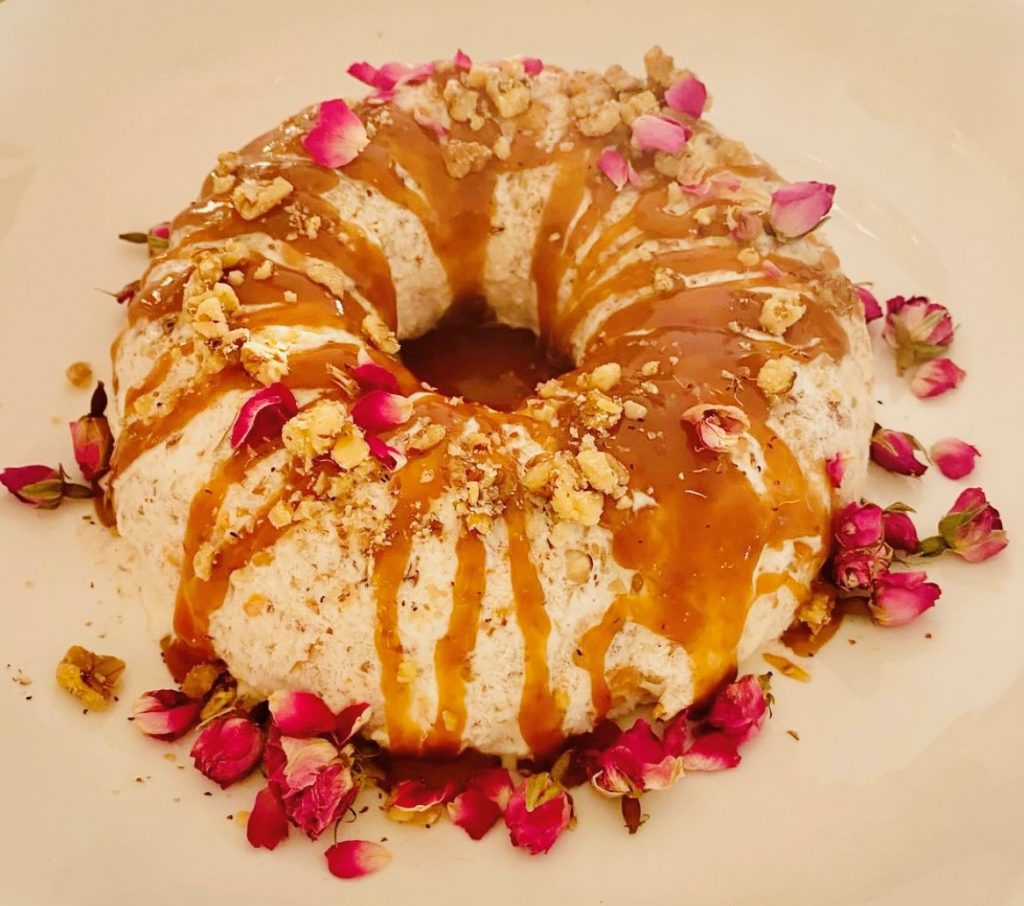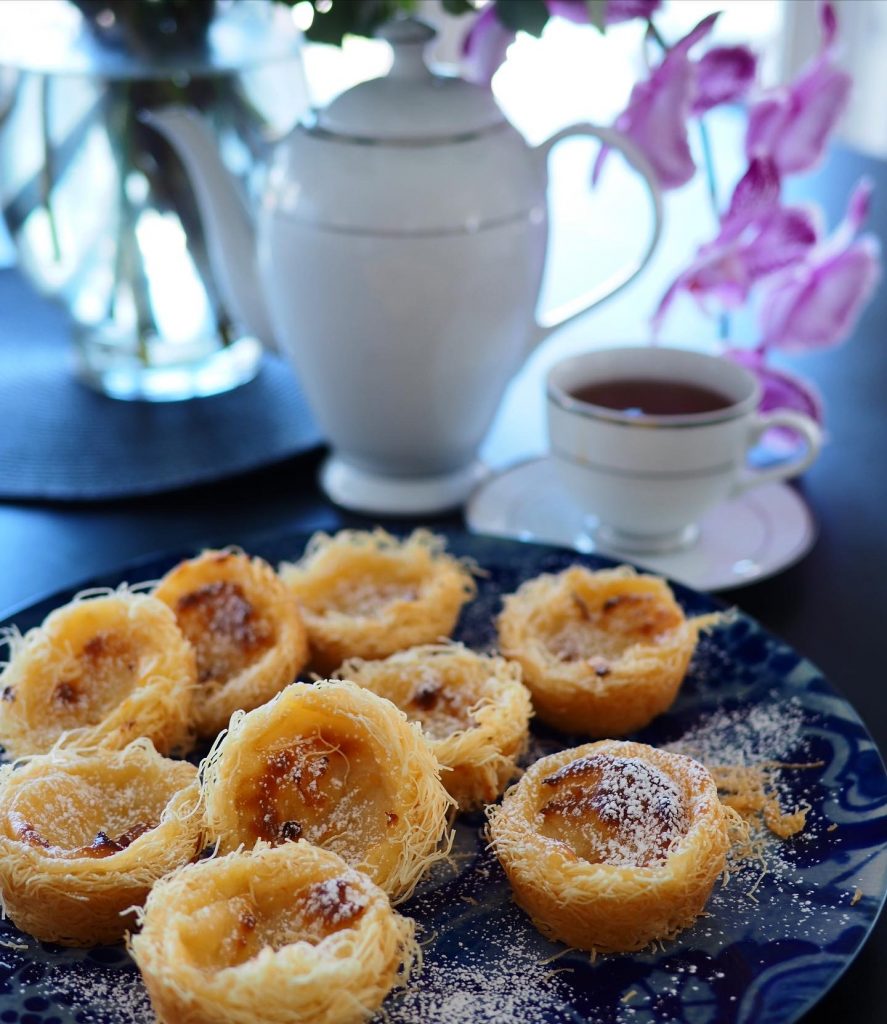It’s almost that time of the year when people are rushing to their nearest grocery store and grabbing last minute ingredients for their Christmas Eve dinner.
Fear not though as The Greek Herald has you covered with Helen Demetriou’s top four dishes for a traditional Greek dinner to be enjoyed on the night before Christmas.
Who is Helen Demetriou?

Helen Demetriou was born in Australia but has a strong Greek Cypriot heritage. From a young age, she was always intrigued by the chemistry of cooking, the flavour combinations and the science behind proofing yeast for bread.
Helen’s mother was an incredible cook and she often aspired to be as great as her. At age 16, Helen found out her mum had terminal cancer and from that day on she knew she had to try and replicate her great dishes. Helen had never written any recipe from her mum but she watched her closely and taste tested every step of the way.
In 2012, Helen, along with her older brother Steve, were on Channel 7’s cooking show, My Kitchen Rules. They made most Greeks proud with their weekly homemade recipes and even made it into the final five.
Helen also has a special segment on the Foxtel series Meraki TV called, Helenskouzina, where she cooks Greek meals in under 30 minutes. The inspiration for this segment was to inspire young Greek Australians to carry on the legacy of the Greek cuisine, and to not be afraid of those daunting dishes that mothers and grandmothers make with ease.
The mum-of-two also hosts small cooking lessons in her home, where you can learn a variety of dishes while enjoying the feast with a glass of your favourite wine.
Many of Helen’s family, friends and followers know she loves to change things up and modernise Greek cuisine to keep tradition in this ever-evolving changing world. That’s why she’s perfect to share her top dishes for Christmas Eve dinner.
Entrée (Tarama and Cypriot bread):

What’s any Greek feast without Tarama? This simple recipe is flawless and made in under 15 minutes.
Ingredients:
- 2 tablespoons of Tarama, fish roe.
- 3/4 of a full loaf of white sliced bread, remove crust. For best results, the bread should be three days old.
- 1 small onion.
- 1 clove of garlic.
- 1/2 lemon juice.
- 1 cup of vegetable oil.
- 1 cup of warm water.
Instructions:
- Start by dampening your bread slightly and set aside.
- In a food processor, place you Tarama fish roe, onion and garlic and blitz. Add each slice of bread one at a time until 3/4 of the loaf is used.
- Pour in your oil very slowly whilst the food processor is in action. Add in the lemon juice gradually until it’s mixed in well.
- Slowly add warm water to your mixture and give it a final blitz. This will help the Tarama become light and fluffy.
A wonderful way to serve this is with my traditional haloumi lady finger bread. For this recipe, head to Helenskouzina on Instagram.
Main (Moussaka):

It’s a given and mandatory that there will be two trays of this delicious goodness at our Christmas lunch. My favourite time to eat this is when my guests have left and I reheat a piece with my cup of tea.
Ingredients:
- 3 large eggplants.
- 5 potatoes.
- Olive oil for frying.
The Meat Sauce:
- 1/2 kg lamb mince.
- 1/2 kg of Pork Mince.
- 2 red onions (chopped).
- 3 cloves of garlic finely chopped.
- 1 tin chopped tomatoes.
- 2 tbsp tomato paste.
- 1 tbsp of capsicum paste.
- 1 glass of red wine (optional).
- 1 tsp of paprika.
- 1 tsp of Cumin powder.
- 1 bay leaf.
- 1 bunch of parsley finely diced.
- 1/4 of a cup olive oil.
Bechamel sauce:
- 1 litre of full cream milk.
- 1256g butter.
- 6 tablespoons of plain flour.
- A pinch of cinnamon.
- 2 eggs.
- 150g halloumi cheese.
Instructions:
- To prepare this Greek moussaka recipe, begin by preparing the eggplants. Cut them into slices (lengthwise), 1 cm thick. Season with salt and place in a colander for about half an hour.
- Wipe off salt and excess water with clean napkins until dry. Fry in plenty of oil, until nicely coloured. Alternatively, you can also bake them in on a flat baking tray for 10 minutes on 180 degrees, set aside when done.
- Par boil your potatoes until semi soft, strain and slice into 1cm portions. You can also fry them if you wish for a better, yummier result.
Meat Sauce:
- Heat a large pan to medium-high heat and add the olive oil. Stir in the chopped onions and garlic and sauté, until softened and slightly coloured.
- Stir in the mince, breaking it up gently. When it starts to brown add tomato paste. Pour in the red wine to deglaze the meat juices and wait to evaporate. Add the tinned tomatoes and spices.
- Bring to the boil then turn the heat down and simmer with the lid on for about 30 minutes or until most of the juices have evaporated. Add in the chopped parsley.
Bechamel sauce:
- Use a large pan to melt the butter over low-medium heat. Add the flour whisking continuously to make a paste.
- Add warmed milk in a steady stream; keep whisking in order to prevent your sauce from getting lumpy.
- If the sauce still needs to thicken, boil over low heat while continuing to stir. Its consistency should resemble a thick cream.
- Remove the béchamel pan from the stove and stir in the eggs, salt, pepper, a pinch of cinnamon and most of the grated halloumi cheese.
- Leave some of the grated cheese to pop on top.
Assembly:
For this moussaka recipe, you will need a large baking dish. Add some oil to the bottom and sides of the pan and layer with a sprinkle of bread crumbs (this will ensure nothing sticks to the pan).
Add the potatoes and then half the eggplants. Pour in all of the meat sauce and spread it out evenly. Add a second layer of eggplants, top with all of the béchamel sauce and smooth out with a spatula. Sprinkle with the remaining grated cheese.
Preheat your oven at 180 degrees Celsius and bake your moussaka for about 60 minutes or until its crust turns light golden brown. For the best results, leave the moussaka in the oven once its switched off until serving.
Dessert (Baklava Ice Cream / Bougasta Tarts):
Baklava Ice Cream

This is always a family favourite, especially at Christmas. It’s the perfect dessert for a summer Christmas lunch. There are two versions:
Ingredients:
- 1 large tub of vanilla ice-cream (2 Litre).
- 2 cups of finely chopped walnuts.
- 1 tablespoon of cinnamon.
- 2 tablespoons of sugar.
- 1 ground cinnamon clove.
Instructions:
- Combine the walnuts, sugar and cinnamon in a bowl.
- Leave the ice-cream at room temperature so that it melts enough to mix through the above mixture.
- Combine the walnut mixture and ice-cream well and pour it into your favourite mould. You can also use a round bowl to set the ice-cream in.
- For best results, prepare the day before.
The second baklava ice cream version requires half a tray of baklava, the filo, nut and syrup mixture blended in the ice cream. It is a show stopper. You can buy ready-made baklava from continental cake shops and even some delicatessens. I make my baklava from scratch. For this recipe, you can visit helenskouzina on Instagram.
Bougatsa Tarts

These are a little twist on your traditional bougatsa and so easy to serve at your Christmas Eve dinner. I promise you it will have your guests coming back for seconds and thirds.
Ingredients:
Custard:
- 110g (1/2 cup) caster sugar.
- 90 g (½ cup) fine semolina.
- Pinch of salt.
- 1 tbsp unsalted butter.
- 1 tsp vanilla extract.
- 750 ml (3 cups) milk.
- 120g unsalted butter.
- 3 tbsp icing sugar, to dust.
- 1 tsp ground cinnamon.
Pastry:
- 375g Antoniou Fillo Pastry, kataifi pastry.
- 125g melted unsalted butter.
Instructions:
Custard:
- Combine the sugar and milk in a medium-size saucepan. Place over a medium heat and bring to a simmer, stirring to dissolve the sugar.
- Stirring constantly, gradually add the semolina and a pinch of salt and cook for 3 minutes until the mixture thickens.
- Add 1 tablespoon of butter and the vanilla extract and stir to combine.
- Pour the mixture into a bowl, cover the surface with baking paper and allow to cool completely.
Pastry:
- Leave pastry out at room temperature for at least half an hour.
- Shred the kataifi to separate.
- Melt the butter and pour over the kataifi and with your hands, gently cover all the strands.
- Use a muffin tin to create your little nests. Scoop 2 tablespoons of custard into your nests and bake on 180 degrees for 20 mins.

